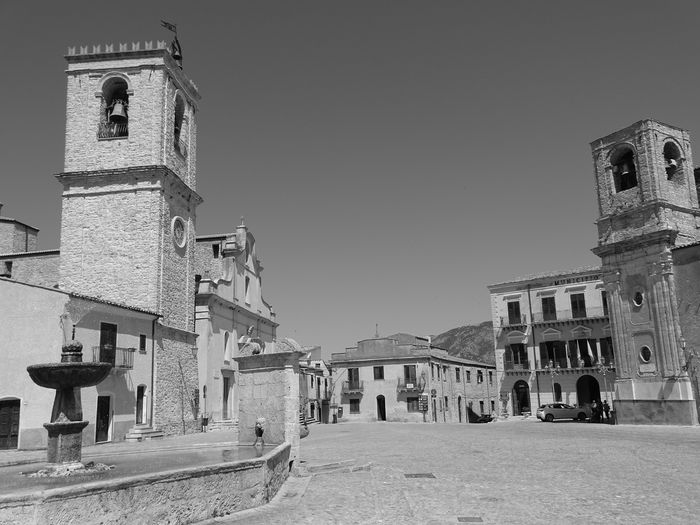Quiet Repression and Rebellion in 1976
For art house babes, history lovers, and even thrill chasers alike, there’s much to love in 1976

1976 is a very different kind of ‘dictatorship’ film. In the first feature of actor-turned-director Manuela Martelli, it’s established from the start that the focus won’t be 1976 Chile itself, but, instead, a bourgeois woman living under the repressive regime. Said woman, played by Aline Küppenheim, is Carmen: the wife of a rich doctor in the capital city of Santiago. Carmen does not work herself, although it’s revealed that she was once in the Red Cross — a period she appears to look back on with great nostalgia.
“Danger is never visually showcased in the film. However, the looming threat of violence is everywhere.”
In the film’s slow first scenes, Carmen spends her days tirelessly trying to occupy herself. She runs errands, speculates on what perfect shade of coral wall paint she should get for her beach house’s renovation, and looks wistfully at the body of a young builder. It’s clear from the long shots of her sleeping, showcasing her ennui, that Carmen is not suited to this quiet, repetitive lifestyle; a fact that seems to be well known by all around her, including her husband, who repeatedly thanks anyone that helps keep her ‘occupied’ while he’s away at work.
That is, until Carmen’s double life commences. It all starts when her local priest asks her to heal a young man hiding in the priest’s house, who is suffering from a deep gunshot wound in his leg; he confides in her that he “couldn’t have gone to anyone else”. The anonymous (for self-protection) wounded man is a member of an underground network of left-wing radicals, who has found himself helpless and isolated; he can’t be handed over to a hospital, as this would also mean giving himself over to the authorities and then, no doubt, being killed.
Carmen agrees to help him instantly, being the bravely empathetic character that she is. But progressively, as Carmen embarks on countless mini-missions in an effort to reconnect her patient with his comrades, it becomes evident that her undertakings aren’t purely selfless: Carmen thoroughly enjoys this rebellion, finally finding her talents being challenged and being put to use for a noble cause. Furthermore, while Carmen is by no means a natural-born revolutionary, the time she spends with her patient and his collaborators undeniably radicalises her: she gradually finds herself more and more ideologically isolated from the sheltered, bourgeois class that she inhabits.
Danger is never visually showcased in the film; however, the looming threat of violence is everywhere. It’s in the close-up shots that capture the menacing glares of strangers that appear to track Carmen’s every move, as well as particularly apparent in the booming score, somewhat reminiscent of Dario Argento’s Suspiria, which resonates in action-filled scenes to heighten the tension of Carmen’s illicit activities.
“She gradually finds herself more and more ideologically isolated from the sheltered, bourgeois class that she inhabits.”
Similarly, the regime itself is never spoken about in explicitly political terms; instead, characters’ political affiliations are hinted at through metaphors. Like, for example, the wife of her husband’s friend, whose fascistic leanings are initially expressed through her distaste for the name of Carmen’s boat: Cleopatra, a name Carmen obviously chooses because it’s the nom de guerre her patient’s comrades ascribe to her. Therefore, this woman’s immediate repulsion at the name Cleopatra acts as a little symbolic wink to the viewer as to what this woman believes. A wink that is later cemented for us when the woman launches into a tirade about the inherent “mediocrity of Chile”, which can only be resolved, according to her, under ‘serious’ leadership. This is, of course, a common fascist talking point, often used to justify inhumane authoritarian rule.
The end of this tale of repression and rebellion comes abruptly with a devastating final scene: this scene comes after Carmen returns home, having found the priest’s house ransacked and learnt that her patient has been discovered and killed. In the nightmarish closing sequence, Carmen carries a beautiful birthday cake over to her granddaughter while sobbing, unable to pretend any more. No one around her acknowledges this, as they continue eerily to sing ‘happy birthday’. As Carmen’s granddaughter blows out the candles, Carmen’s revolutionary hope dies too, alongside the burning flame.
1976 is a remarkable debut film and an addictive psychological thriller. It’s a very quiet film (minus the deafening score) about suppressed desire and dreams, that is beautifully subdued and sensitive. Aline Küppenheim carries the film’s narrative fantastically, with an intricate characterisation evocative of Isabelle Huppert, whilst dressed in the most delicious costumes. For art house babes, history lovers, and even thrill chasers alike, there’s much to love in 1976; at the very least its aesthetics: its pastel film cinematography will arm you with the perfect arty Insta story content, which’ll give your followers a welcome break from the cheeky cafe shots of your paper 2 revision textbook.
 News / University Council rescinds University Centre membership20 February 2026
News / University Council rescinds University Centre membership20 February 2026 News / Hundreds of Cambridge academics demand vote on fate of vet course20 February 2026
News / Hundreds of Cambridge academics demand vote on fate of vet course20 February 2026 News / Judge Business School advisor resigns over Epstein and Andrew links18 February 2026
News / Judge Business School advisor resigns over Epstein and Andrew links18 February 2026 News / Caius students fail to pass Pride flag proposal20 February 2026
News / Caius students fail to pass Pride flag proposal20 February 2026 News / Union cancels event with Sri Lankan politician after Tamil societies express ‘profound outrage’20 February 2026
News / Union cancels event with Sri Lankan politician after Tamil societies express ‘profound outrage’20 February 2026










